Table of Contents
Trouble Starting Car After Sitting Overnight: Causes, Diagnosis & Mercedes GLA Case Study
Waking up to find your car won’t start after sitting overnight can be both inconvenient and stressful. Even when the car ran perfectly the previous day, something as simple as a hidden electrical drain, a weak battery, or wiring damage can prevent it from starting in the morning.
In this article, we’ll walk through the most common causes, troubleshooting steps, and a real-world Mercedes-Benz GLA 200 case study that demonstrates how a small wiring fault caused an overnight no-start issue and how it was solved.
Common Reasons a Car Won’t Start After Sitting Overnight
| Category | Typical Cause | Effect on Starting |
|---|---|---|
| Battery | Weak or partially discharged battery | Insufficient voltage to crank engine |
| Electrical Drain | Current leakage from wiring or modules | Battery drains while parked |
| Fuel System | Fuel pump or injector issues | Fuel not reaching cylinders |
| Ignition | Faulty spark plugs or coils | Poor ignition spark after rest |
| Mechanical | Thick oil, timing issues | Increased resistance on cold start |
Even if your lights or dashboard work, the battery may not have enough power to spin the starter or power control units after sitting unused.
Case Study: Mercedes-Benz GLA 200 Trouble Starting After Sitting Overnight
Customer Complaint
A Mercedes-Benz GLA 200 owner reported:
“My car won’t start after being parked overnight. It starts fine during the day but struggles in the morning.”
This issue repeated daily, suggesting an electrical drain or voltage loss when the vehicle was off for long periods.

1. Initial Inspection
Battery Check
- – Test: Battery voltage measured in the morning.
- – Result: Low voltage reading.
- – Action: Battery recharged and retested using a load tester.
- – Outcome: Battery passed the test confirming it was not defective.

Current Leak (Parasitic Drain) Test
- – Test: Measured current draw with ignition off.
- – Result: Values within acceptable limits (no major power drain).
- – Conclusion: No significant standby power loss detected during standard test.
Battery and current drain both appeared normal yet the issue persisted.

2. Advanced Diagnostic Investigation
With no clear fault from basic tests, the technician performed a deeper inspection using Mercedes XENTRY diagnostics and manual wiring verification.
Fault Code Analysis
- – Result: No relevant stored fault codes.
- – Inference: The problem was likely electrical, not a sensor or ECU failure.

Wiring & Amplifier Inspection
- – Focus area: wiring harness at the amplifier section, located near the trunk area.
- – Discovery: Evidence of previous accident repair wiring had been modified incorrectly.
- – The improper splice caused a minor but consistent current leak, draining the battery just enough overnight to prevent starting yet not enough to trigger standard current leak thresholds.

3. Repair & Verification
Repair Actions
- 1. Removed and reworked the damaged wiring harness.
- 2. Restored OEM wire routing and insulation.
- 3. Ensured proper grounding and connector sealing.
Post-Repair Testing
| Test | Result |
|---|---|
| Battery voltage after 12-hour rest | 12.6 V (stable) |
| Current leak test | Within factory specification |
| Overnight start test | Engine started immediately |
| Follow-up test after 48 hrs | Normal cold start |
The issue was successfully resolved the Mercedes GLA 200 now starts normally every morning.
Diagnostic Summary
| Symptom | Root Cause | Solution |
|---|---|---|
| Car fails to start after sitting overnight | Hidden current leak due to modified wiring harness | Restored original wiring configuration |
| Battery repeatedly low but tests normal | Parasitic drain not detected in standard test | Manual circuit isolation and repair |
| No stored fault codes | Wiring modification post-accident | OEM harness repair and sealing |
Troubleshooting Guide: Car Won’t Start After Sitting Overnight
Follow these structured steps before replacing any components:
Step 1 : Visual Inspection
- – Check for loose terminals, corrosion, or wet connectors.
- – Look for aftermarket modifications or repairs.
Step 2 : Battery & Voltage Test
- – Measure resting voltage (≥ 12.4 V).
- – Perform load test to confirm true capacity.
- – If voltage drops below 10 V during crank, replace the battery.
Step 3 : Parasitic Current Draw Test
- – Connect an ammeter in series with battery negative terminal.
- – Normal sleep current: 20–50 mA after all modules sleep.
- – If above 80 mA, isolate circuits one fuse at a time.
Step 4 : Fuel & Ignition Check
- – Listen for the fuel pump priming.
- – Inspect spark plugs and coil connectors.
- – Use diagnostic scan for crankshaft/camshaft synchronization.
Step 5 : Mechanical Verification
- – Check oil and coolant levels.
- – Inspect for timing chain tension issues, especially on M270/M282 engines.
How to Fix a Car That Struggles to Start After Sitting
| Area | Action | Outcome |
|---|---|---|
| Battery | Replace if over 4 years old or repeatedly discharges | Reliable morning starts |
| Wiring | Repair damaged harness and grounds | Prevents hidden current loss |
| Fuel System | Clean injectors, ensure fuel pump primes | Restores pressure consistency |
| Starter Circuit | Inspect relay and solenoid | Improves crank performance |
| Alternator | Confirm charging voltage (13.8–14.2 V) | Maintains healthy battery cycle |
Preventive Tips
- – Avoid leaving electronics (chargers, dashcams) plugged in overnight.
- – Keep the battery fully charged if the car isn’t driven regularly.
- – After accident repairs, always inspect for non-OEM wiring splices.
- – Schedule periodic XENTRY diagnostic scans to monitor system sleep states.
Related Diagnostic Resource
If you’re facing similar starting problems, explore our full troubleshooting hub:
Mercedes No Start Issues: Causes, Fixes & Case Studies : a complete guide covering electrical, fuel, and ECU-related no-start scenarios across multiple Mercedes models.
FAQ
1. Why does my car start fine during the day but not after sitting overnight?
Battery voltage may drop slightly overnight due to a minor current leak, making it too weak for morning starts.
2. What causes hidden current drains in Mercedes vehicles?
Improper wiring repairs, aftermarket accessories, or malfunctioning modules that fail to enter sleep mode.
3. How long should a Mercedes battery last?
Typically 4–6 years, depending on climate and driving habits. Regular load testing extends lifespan.
4. Can accident repairs cause electrical issues later?
Yes, poor wire splicing or damaged insulation can create parasitic drains or communication faults months later.
Author Bio
Written by Mercedes Expert
With years of hands-on experience diagnosing and repairing Mercedes-Benz systems, he brings technical depth and practical case studies to help car owners, technicians, and enthusiasts troubleshoot complex automotive issues. His work focuses on clear repair guides, OEM-level procedures, and knowledge-sharing to empower both professionals and drivers.
Last update: October 2025

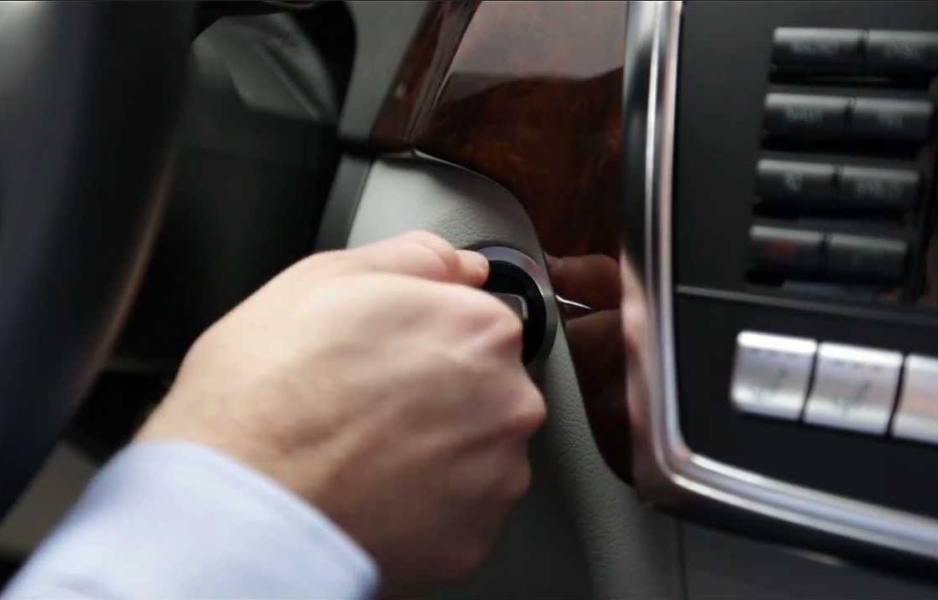
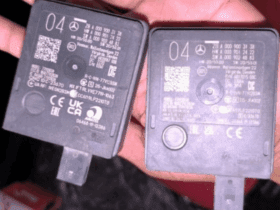
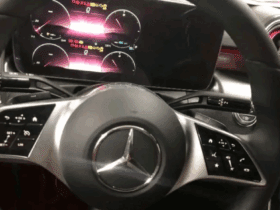
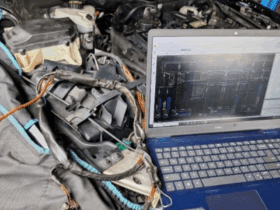
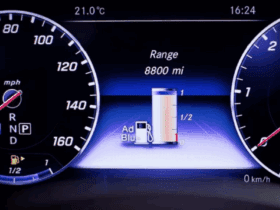
Leave a Reply